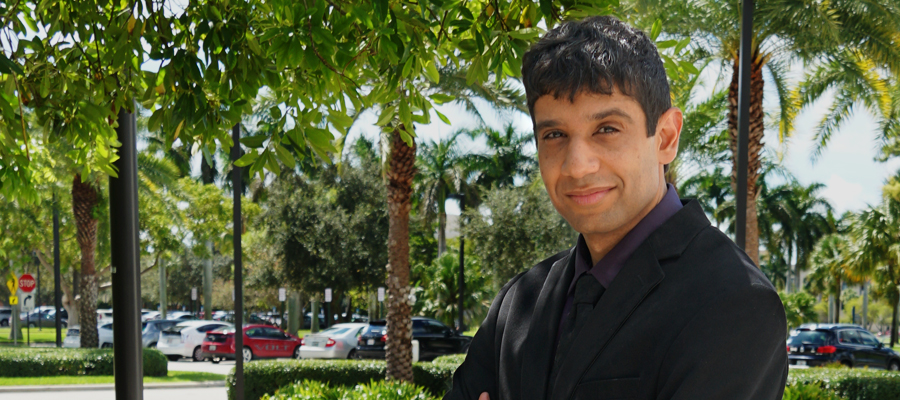Researcher Introduces Innovations in Evolutionary Genomics
by Yaffi Spodek | Tuesday, Apr 13, 2021
Understanding the evolutionary processes that shape the distribution of genetic variation among individuals, populations, and species is central to the study of evolutionary and population genomics.
Dr. Michael DeGiorgio, associate professor in the Department of Electrical Engineering & Computer Science at the FAU College of Engineering and Computer Science, is conducting groundbreaking research in this field, as he works to develop methods and software tools for understanding biological data.
“We work in human evolutionary genomics by employing information from ancient and modern DNA samples to elucidate the evolutionary history of populations in the Americas,” Dr. DeGiorgio explained. “We develop statistical and machine learning methods for identifying genomic regions undergoing natural selection; additionally, we design and theoretically assess algorithms for inferring phylogenies when genomic signals conflict.” Dr. DeGiorgio leads a data science research group at FAU that has attracted over $2.4 million in private and federal funding and close to $1.8 million in additional collaborative awards.
Dr. DeGiorgio’s research has the potential to significantly impact public health as it relates to natural selection. “By leveraging information about multiple evolutionary forces, we can identify signatures of natural selection in the human genome, and ultimately determine its role in human adaptation and disease,” he said. He received the highly competitive National Institutes of Health Maximizing Investigators' Research Award (MIRA) for early-stage investigators. This award funds a $1.8 million project to develop statistical and machine learning methods for population genomics to identify signals of adaptation from genetic data.
Dr. DeGiorgio also received a $255,000 grant from the National Science Foundation (NSF) to use advanced DNA sequencing technology and population genomics to elucidate the demographic and adaptive history of the indigenous people of North America. Results will be highlighted during the annual Summer internship for INdigenous peoples in Genomics (SING) workshops.
“The SING outreach program is particularly significant, since it aims to introduce individuals from Native American communities to what scientists can currently do with an individual’s genomic data, as well as the ethical, legal, and social issues associated with genomics research,” said Dr. DeGiorgio. “Our hope is to recruit future SING participants, interested in a scientific career, to start a PhD program and drive the research studies.”
Dr. DeGiorgio teaches Introduction to Data Science and Computational Foundations of Artificial Intelligence and works with faculty and students on interdisciplinary research projects. “There is a lot of potential for collaboration with the College of Medicine and the College of Science, particularly in the field of bioinformatics,” he added.